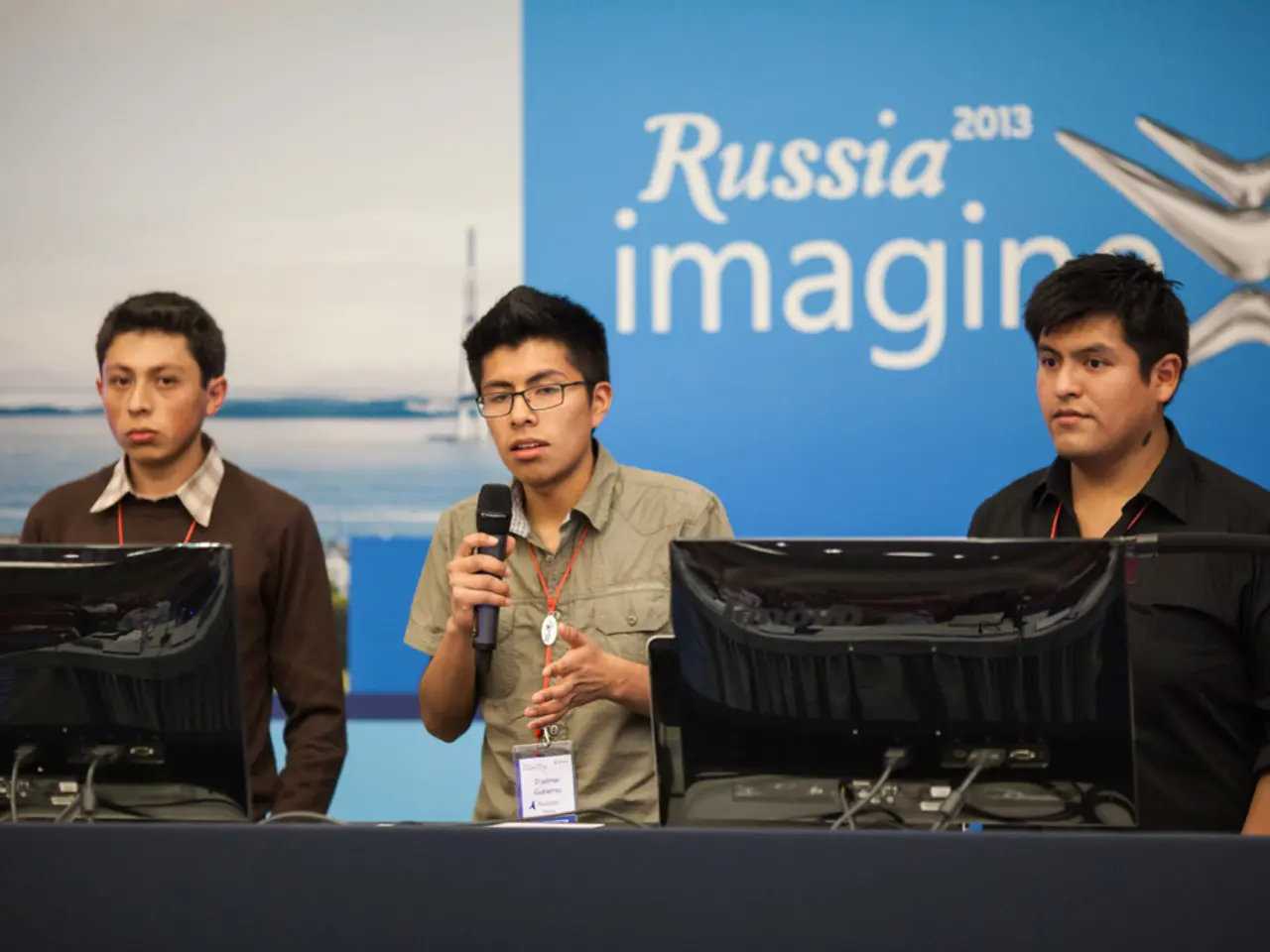Interview: Disconnected and Overlooked - Billions Excluded by Digital Disparity
The Digital Cooperation Organization (DCO), a multinational organization established in 2020 with 16 members representing 800 million people, is on a mission to bridge the digital divide and ensure digital prosperity for all. The organization, led by Deemah AlYahya, recognizes the stark digital divide as a significant challenge, with at least 2.6 billion people being excluded from the internet, creating a chasm between developed and developing nations.
The DCO's strategy to address this issue unfolds in a comprehensive, phased development agenda. The plan, spanning from 2025 to 2028, emphasizes early activation, structured scaling, and finally scaling innovation and measurable socio-economic impact, with a focus on bridging digital maturity gaps among countries.
Key components of the DCO's approach include building institutional capacity and stakeholder engagement, structured program scaling and partnership expansion, bridging digital divide and enhancing digital maturity, supporting practical digital inclusion efforts, engaging in global digital economy trends and foresight, and ensuring that the tools, computing capabilities, data, and talent required for AI development and adoption are accessible to all.
To build institutional capacity and secure buy-in from member states, the DCO focuses on establishing institutional frameworks that align with national priorities. Over 2026-2027, the DCO consolidates learnings from initial phases, refines programs, expands initiatives globally, and increases partnerships and resource mobilization through mechanisms like the Digital Economy Impact Fund (DEIF).
By 2028, the DCO aims to reduce disparities in digital capabilities across member states, embedding systems for continuous monitoring and driving socio-economic and policy outcomes relevant to digital inclusion. The organization supports tools and frameworks such as the AI-REAL Toolkit, which helps countries assess and implement inclusive AI strategies tailored to their specific capacities and needs, fostering practical adoption of advanced digital technologies in an inclusive manner.
Addressing digital inclusion also involves promoting access to devices, internet connectivity, and digital skills training, especially for vulnerable and low-income populations. Initiatives like WE-Elevate support women-led micro and small businesses in countries like Rwanda, Gambia, and Nigeria, providing digital skills training, tailored business advice, and an e-commerce platform with integrated logistics and payments.
The DCO recognizes the importance of engaging in global digital economy trends and foresight. Through expert webinars and reports, the organization informs policymakers and stakeholders about emerging digital trends, helping prepare countries to leverage opportunities and minimize risks related to frontier technologies, which is critical for equitable digital development.
The DCO's mission is to help member states build resilient, future-ready digital economies where opportunities are shared and growth is inclusive. The organization measures success through both data and impact, using tools like the Digital Economy Navigator with over 100 indicators. The DCO acknowledges the challenges posed by the digital divide, differences in regulatory approaches, and the need for multilateral cooperation, particularly around issues like data flows, AI, and digital trade. The organization emphasizes that multilateral cooperation is not optional in the context of AI; it is indispensable.
As AI is expected to create new opportunities, with forecasts indicating that 170 million new roles could emerge by 2030, the DCO is also mindful of the potential challenges. By 2030, AI and automation are expected to transform 86% of businesses globally. However, this transformation could also lead to 92 million existing jobs becoming redundant. The DCO's long-term goal is to help member states navigate these changes and build resilient, future-ready digital economies where opportunities are shared and growth is inclusive.
- The Digital Cooperation Organization's long-term goal, by 2030, is to help member states navigate AI-driven changes and foster the creation of 170 million new roles, while also minimizing the impact of technology on 92 million existing jobs becoming redundant.
- In an effort to democratize AI development and adoption, the DCO supports the use of tools like the AI-REAL Toolkit, which helps countries assess and implement inclusive AI strategies, thereby ensuring equitable digital development.
- Recognizing the importance of financial resources in digital development, the DCO consolidates learnings from initial phases, expands initiatives globally, and increases partnerships and resource mobilization through mechanisms like the Digital Economy Impact Fund (DEIF) from 2026 to 2027.




